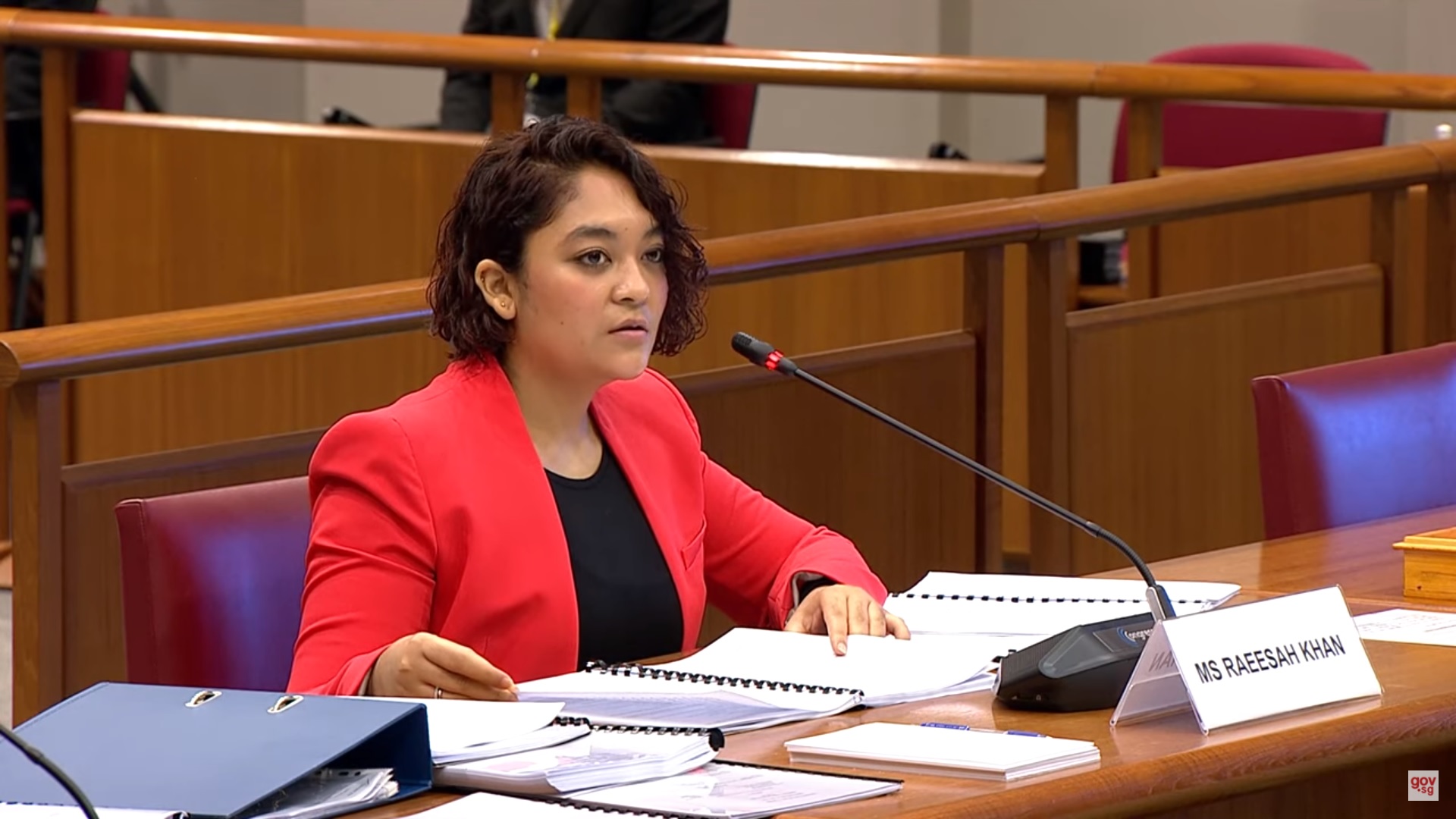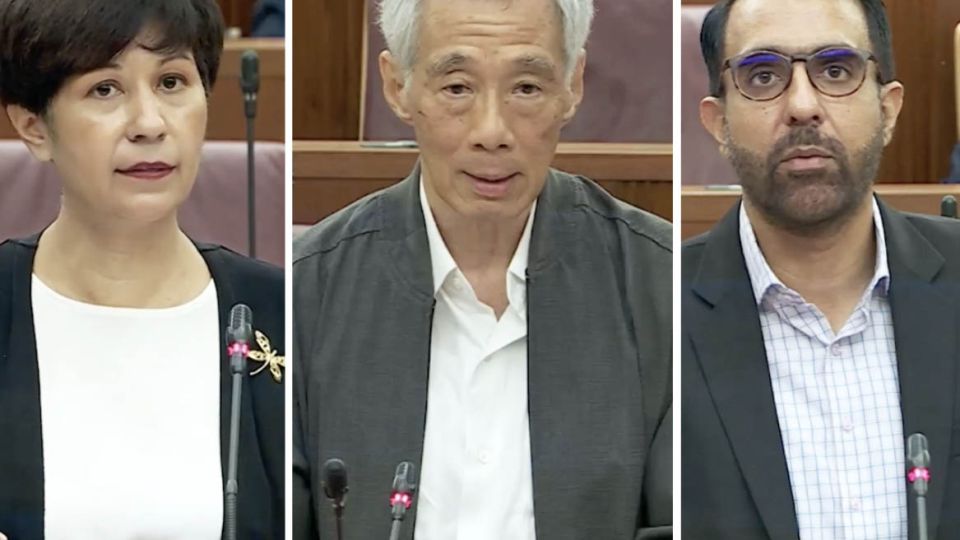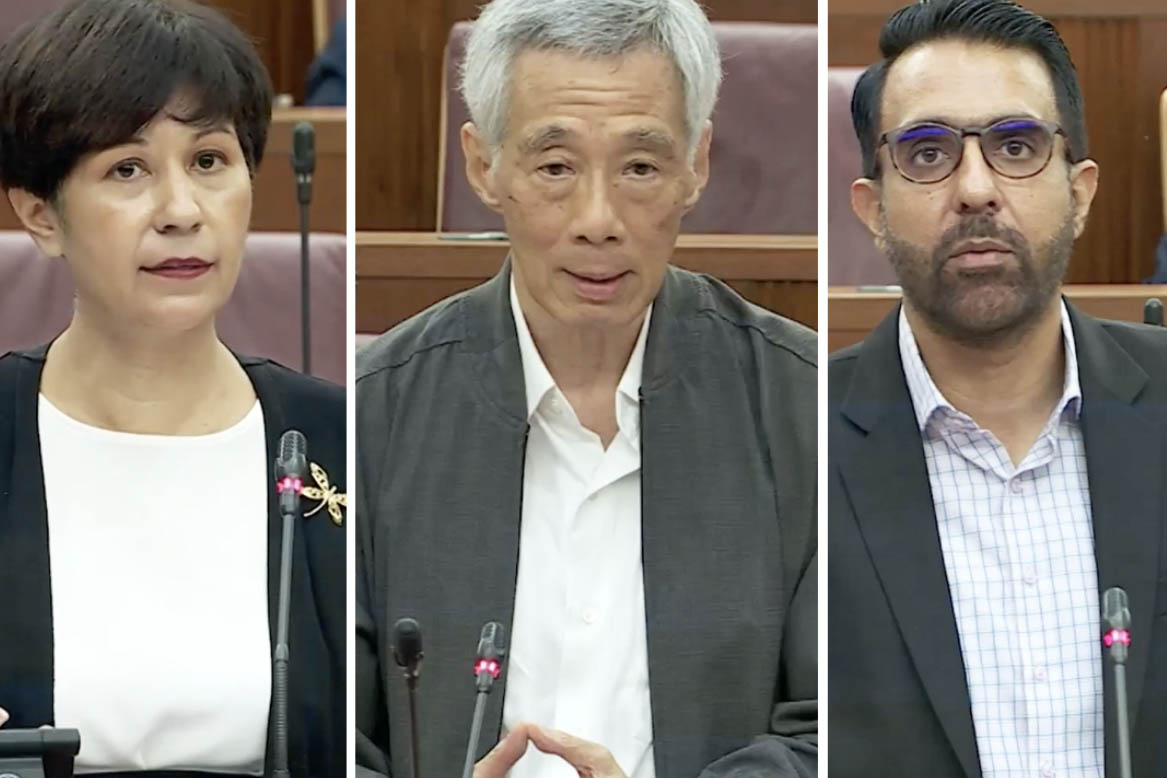February 16, 2022
SINGAPORE – Leader of the Opposition Pritam Singh on Tuesday (Feb 15) rejected a parliamentary committee’s conclusions that he had guided his former Workers’ Party (WP) MP Raeesah Khan to lie to Parliament last year, and that he had committed any offences as part of his role in the entire affair.
He acknowledged that he had given her too much time to clarify the lie, and said he had done so because she was the victim of a sexual assault and had confided in him.
But Mr Singh rejected Ms Khan’s assertion that he had told her to take her lie “to the grave”, and said a natural explanation for her behaviour was how it was human nature to feel “disenchantment” with the party and its leadership once she saw the curtain coming down on her political career after she resigned.
He also rejected the committee’s finding that he had guided Ms Khan to lie for a third time in October.
“Not everybody reacts with loyalty to their party or their leaders when they realise that the curtain is coming down on them or their political careers,” he said.
“When your departure is precipitated by an overwhelming loss of support from your party members and colleagues except for your closest allies, from a human behaviour standpoint, I can understand why a person would turn against one’s party leaders.”
The WP chief was speaking during a parliamentary debate on two motions relating to the Committee of Privilege’s recommendations to fine Ms Khan $35,000, and for him and WP vice-chair Faisal Manap to be referred to the Public Prosecutor for possible criminal charges.
Mr Singh also said the evidence he submitted to the committee had either not been noted or included in the committee’s report, and that the panel had also ignored some contemporaneous evidence given by party members even though it gave weight to such evidence from Ms Khan.
Leader of the House Indranee Rajah had filed motions calling on the House to agree with the findings and recommendations of a Committee of Privileges’ (COP) report released last Thursday (Feb 10).
The panel, which comprised seven People’s Action Party (PAP) MPs and one WP MP, had called for a $35,000 fine for Ms Khan for lying in August and October last year; and for Mr Singh and Mr Faisal to be referred to the Public Prosecutor for further investigations with a view to considering criminal proceedings.
On top of concluding that Ms Khan was acting under the guidance of party leaders when she repeated her lie, the panel determined that Mr Singh had lied while giving evidence under oath and that this could amount to perjury, and that Mr Faisal’s refusal to answer questions could amount to contempt of Parliament.
Joining the debate, Mr Singh opened his 15-minute speech by saying that when seen as a whole, the COP’s processes and the report before Parliament “leave many questions, gaps and omissions, and by extension, suggest political partisanship”.
He noted that Ms Khan’s testimony that she was instructed to take her lie to the grave by the WP leadership was “uncorroborated” and a “fabrication which never came out from any witness” aside from Ms Khan herself.
“I reject this finding completely. At no time did I instruct Ms Khan to hide the truth,” he reiterated. “At the meeting on Aug 8, none of the three WP leaders told Ms Khan to take a lie to the grave.”
Aug 8 was when Ms Khan first came clean internally to WP leaders, explaining that she lied because of her own personal trauma of being sexually assaulted.
Mr Singh then sought to explain Ms Khan’s reasons for making such a claim, saying: “Her post-resignation behaviour was natural in the arena of political participation.”
He cited former PAP MP for Whampoa Augustine Tan’s observation that there was a lot of “strain, tension and resentment” when older lawmakers were told to step aside amid Singapore’s transition from its first-generation (1G) to 2G leadership.
“One outgoing minister even spoke against the candidature of (Prime Minister Lee Hsien Loong) at the 1984 elections, such was the level of disenchantment,” said Mr Singh.
He raised another example in former deputy prime minister Toh Chin Chye, whom he recalled becoming a vocal critic of the PAP after stepping down from the Cabinet in 1981 and being “pushed” to the backbench.
“The comparison with Ms Khan’s behaviour and testimony at the COP is apt,” said Mr Singh.
On the report itself, he said his main grouse was what he felt to be a “disregard” of evidence he had submitted, which would cast doubt on the report’s eventual findings including the “unparliamentary language used at various places which is not supported by evidence”.
Mr Singh said: “The most egregious in my mind, is the conclusion that in seeking a psychiatric evaluation for Ms Khan, I had somehow weaponised her condition.”
He said he had mentioned the evaluation because Ms Khan had revealed herself – of her own accord to a WP disciplinary panel looking into her conduct – to be seeing a psychotherapist who had referred her to a psychiatrist.

Former WP Raeesah Khan stuck to her account of the opposition party’s leaders advising her to keep up a lie when she testified before the Committee of Privileges on Dec 22, 2021. PHOTO: GOV.SG
Second, Ms Khan had voluntarily shared with the panel, which included Mr Singh, that she suffered from dissociation – evidence that had also been forwarded to the committee, the WP chief said.
He added that when asked an open question by the committee as to why Ms Khan would make certain statements, he attempted to give a fair answer in line with what Ms Khan had herself revealed.
“If the COP was indeed a fact-finding body, should I not have raised the matter of Ms Khan possibly labouring under a condition to the COP?” Mr Singh asked. “I believed… the COP ought to see it as a mitigatory point in her favour.”
He rejected what he saw as the committee’s assertion that “in raising the matter of Ms Khan’s mental health to a fact-finding body with a view to considering an appropriate punishment on her, I had somehow smeared her, or worse, somehow cast aspersions on those with mental health conditions”.
Mr Singh also said he strongly disagreed with how the committee had characterised his evidence in “antagonistic” terms when it came to WP cadre members Loh Pei Ying and Yudhishthra Nathan. Ms Loh was Ms Khan’s secretarial assistant and Mr Nathan was also aiding her.
He cited how he had given evidence to show that he had good reasons for concluding that their loyalty to Ms Khan was a consideration in their minds.
For instance, said Mr Singh, Ms Loh had made clear to the WP disciplinary panel that resignation “should not be on the cards” because in Ms Loh’s view, what Ms Khan did “was not serious as it was not as if Ms Khan had… laundered money”.
“Such evidence does not appear to have been considered by the COP,” said Mr Singh.
He added that the committee’s final report had also omitted character references he made in evidence about Ms Loh and Mr Nathan, calling them “decent, good people (who) have done a lot for the party”.
“I still hold that view,” said Mr Singh.
On why he felt such evidence had not been considered by the COP, Mr Singh said: “I can only speculate… Could it be to strategically drive a wedge and disunite the Workers’ Party – and to show that its leaders recklessly cast aspersions on their own members?”
Concluding his speech, he said that while he objected to the motion calling on the House to refer him to the Public Prosecutor, should Parliament choose to adopt it, “I intend to clear my name and will cooperate fully with the Public Prosecutor”.
“For this reason, I have kept my comments on the COP report for today’s purposes very narrow and limited,” he added.



